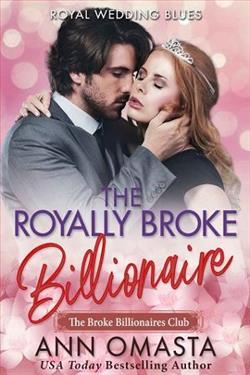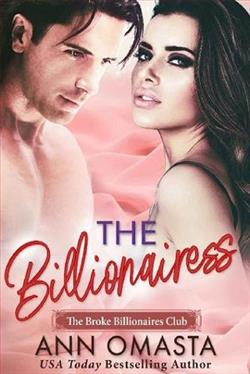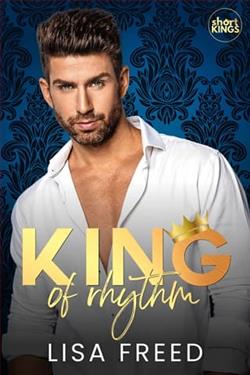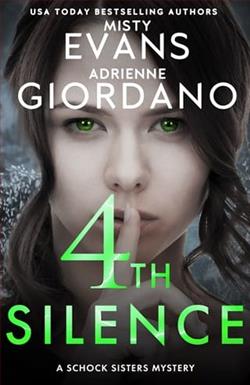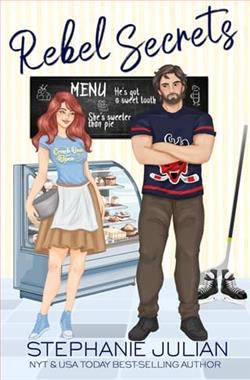Page 11 of Sunrise By the Sea
‘Actually, I’m here for keys too?’
Polly slapped her head.
‘Of course, sorry, what an idiot. I’m Polly, by the way. You must be . . .’ She read the piece of paper. ‘Marisa Rossi? Oh, what a pretty name.’
‘Um, thanks.’
Polly handed over the keys and the file, as the children eyed her carefully in case she turned out to be a leopard or something.
‘Well, welcome to Mount Polbearne. Do you know how long you’re staying?’
Marisa shrugged, and Polly gave her an intense look. She remembered turning up here by herself, a long time ago. It had been a strange experience, to be sure.
‘Well, I hope you like it,’ she said, smiling.
Marisa hadn’t even thought about whether she’d like it or not. She just wanted to get in somewhere and shut the door and hide away from everything else, and if this place was right at the end of the world, well. That would do.
‘I’ll take . . . Can I take a loaf of bread? And some rolls . . .’
‘Oh, of course! Goodness, why didn’t I tell that peculiar man to buy some bread too. I can’t have been thinking straight.’
‘Also, we don’t want him to be HUNGRY,’ came a voice from down by her knees.
‘Could you take one up to him?’ asked Polly. ‘He can pop in and pay for it any time, I know where he lives.’
Marisa was stricken. The idea of going to someone else’s house, of having to . . . No. Today had already been bad enough. She couldn’t. Why couldn’t anyone see that? That life was easy for them and hard for her? Sometimes she wished she could carry a stick around so that people could see there was something wrong with her. Or wear a badge? No, not a badge. Just something people would know to avoid her and not to bump into her or ask her to do things she simply couldn’t do.
Frozen, she didn’t answer, but Polly didn’t notice.
‘Oh, he might have brought his own stuff from the mainland. I wonder if he’s going to eat all those strawberry tarts by himself?’
She chattered on, even as Marisa was mentally breathing a sigh of relief. She took the bread and keys, muttered thanks and escaped outside before Polly had a chance to give her directions.
But outside there were people around, walking dogs, boats coming in, people hailing each other and saying hello and she realised she couldn’t stay like that either, and glanced at the map in the file of papers, and turned, and putting one foot in front of another, started pulling her suitcase up the hill.
Chapter Nine
The village loomed above her although Marisa barely noticed; the huge church at the top, the houses tumbling higgledy-piggledy down around the mound of it.
In the spring sunshine it looked attractive and inviting, the early morning mist still burning off around the foot of the hill, making it look as if it had just shimmered into view, as if it were purely magical. The lighthouse was on her left, out on its own promontory; the beach scooped beneath the harbour walls and, on the other side, were many clattering fishing boats. Along the harbour front the pub, the fish and chip shop, gift shops, ice creams . . . and the bakery, of course, just there on the corner, in its charming dove-grey.
But Marisa didn’t look at any of it. She kept her head down and ploughed on alone, stepping miles away from anyone who approached her on the narrow pavement.
She felt so abandoned, so far away from everything, as if every day sailed her further away from the life she had once known, once had.
She followed the road as it wove around the hill, each house higher up than the last, sometimes the older stone cottages looking as if they were leaning tipsily on one another, their small doorways opening directly out onto the road. Eleven Polbearne Heights . . . where was it? She was getting out of breath as the sun beamed down and her suitcase seemed to get heavier and heavier, like dragging a cow up a hill.
The church was just above her now, and the school was to her right-hand side. She couldn’t see a lot of houses. Was this right? Her phone signal was blinking in and out. Oh good, that wasn’t going to be a lot of help. She was panting now, red in the face.
Just to the right, the cobbles ran out completely and there was a dusty unlaid road turning sharply uphill. There was no road sign on it at all. This couldn’t be it, could it? She remembered what the woman in the bakery had said to that man, about the road running out. Could it be?
She turned a steep corner up the cliff, with a sheer rockface just to her left – and there they were.
A little row of four beach houses: two unfinished, but two ready. They looked like overgrown beach huts, with clapboard frames, four of them in a row, painted pastel colours: lemon-yellow, sky-blue, pink and mint.
Number 1, hers, was the lemon-yellow. There was a set of steps up to the high front door, through a tiny patch of ungrassed yard. Underneath was a kind of garage space that didn’t look quite finished.
She took out the key Polly had given her. The four glass panes in the entrance showed all the way through; she tried the key, which turned right away, and she couldn’t help herself – she felt, for the first time in months, a tiny flicker of excitement.








